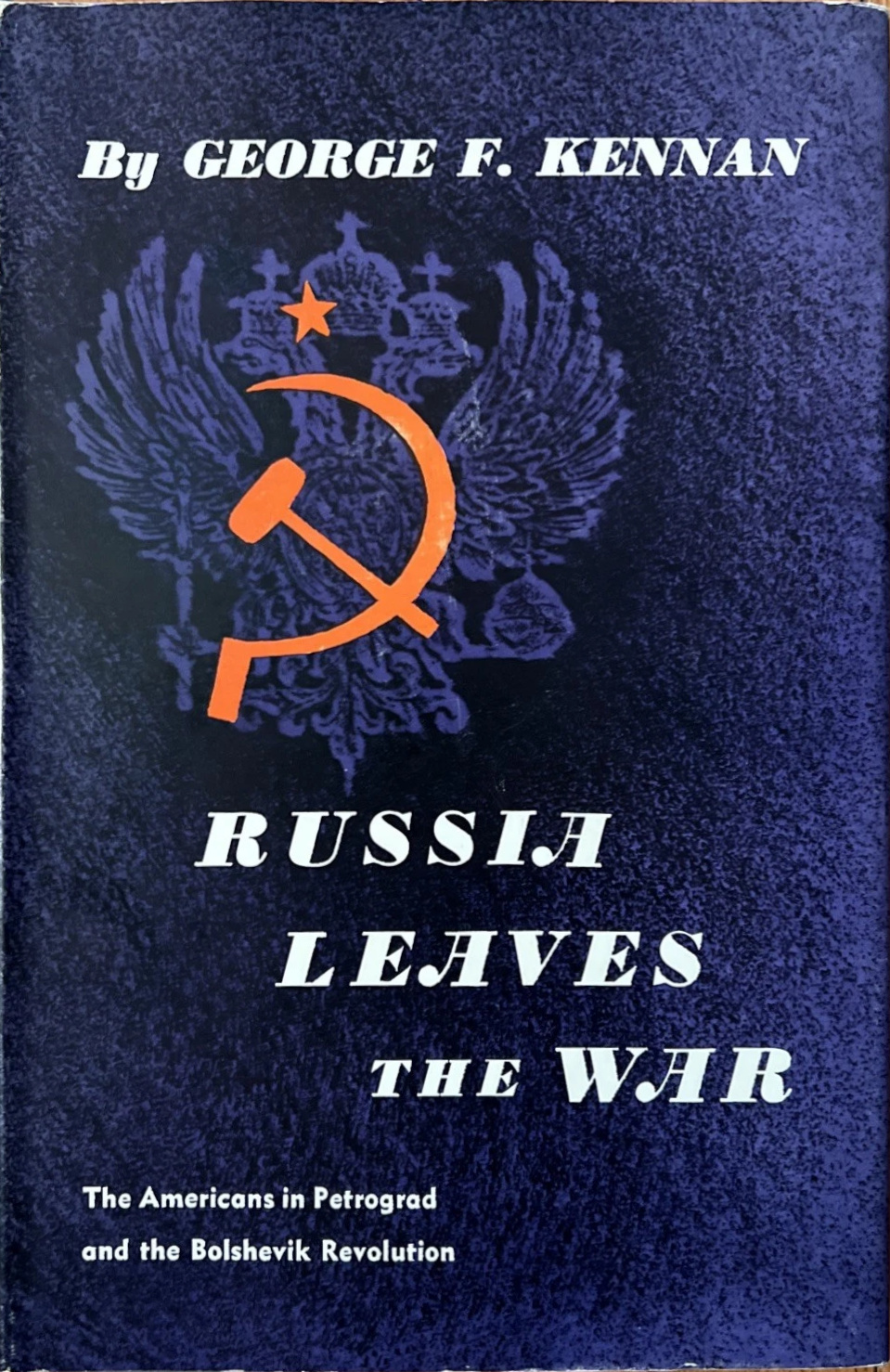Hardcover, 544 pages
English language
Published 1956 by Princeton University Press.

Hardcover, 544 pages
English language
Published 1956 by Princeton University Press.
The troubled days in Russia during World War I, from the Bolshevik seizure of power in November 1917 to Russia's final departure from the war after the Treaty of Brest Litovsk in March 1918, are the setting of this absorbing historical narrative. The small American communities in Petrograd and Moscow were suddenly thrust into a bewildering situation. Should the new regime be recognized? What was its true nature and its probable import for the future? Was there any way to keep Russia in the war against Germany, or at least to prolong her war effort? What was to be done about the dangerous vacuum developing in Siberia and Manchuria with the collapse of Russian power in the Far East.
Mr. Kennan, a government expert on Russia over many ears and later director of the State Department Policy Planning Staff, as well as Ambassador to Russia, approaches this period with …
The troubled days in Russia during World War I, from the Bolshevik seizure of power in November 1917 to Russia's final departure from the war after the Treaty of Brest Litovsk in March 1918, are the setting of this absorbing historical narrative. The small American communities in Petrograd and Moscow were suddenly thrust into a bewildering situation. Should the new regime be recognized? What was its true nature and its probable import for the future? Was there any way to keep Russia in the war against Germany, or at least to prolong her war effort? What was to be done about the dangerous vacuum developing in Siberia and Manchuria with the collapse of Russian power in the Far East.
Mr. Kennan, a government expert on Russia over many ears and later director of the State Department Policy Planning Staff, as well as Ambassador to Russia, approaches this period with unusual insights. In tracing the pattern of events he clearly demonstrates one of his basic contentions about international diplomacy—the importance of the individual. We follow President Wilson, Secretary Lansing, Colonel House, and their advisors, as they sought to piece together the fast-moving events and to chart a wise course for the United States; Ambassador Francis, General Judson, Edgar Sisson, Raymond Robins, and others on the Russian scene, often working at cross purposes in their dealing with the Russian leaders and in their responses to new situations. In this volume Mr. Kennan opens the way to an understanding of a period which has been subject of many legends and much controversy.